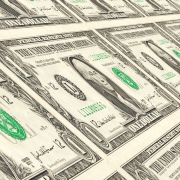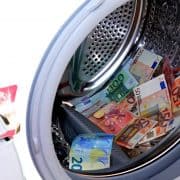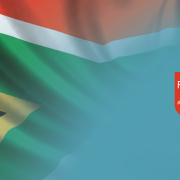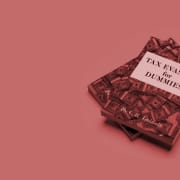|
Getting your Trinity Audio player ready...
|
Image: Reserve Bank of Zimbabwe
By Yarno Ritzen and Al Jazeera Investigative Unit
First published on Al Jazeera
The government of Zimbabwe says it will launch investigations into several people involved in gold smuggling and money laundering following the release of an undercover Al Jazeera investigation showing high-ranking officials involved in the illicit gold trade.
Gold Mafia, a four-part series by the Al Jazeera Investigative Unit (I-Unit), shows among others one of Zimbabwe’s highest-ranking diplomats offering to launder large amounts of money through illegal gold smuggling.
Only two parts have been released so far – with parts three and four releasing on 6 and 13 April, respectively – but the investigation has led to shocked responses in Zimbabwe.
“Government takes the allegations raised in the documentary seriously, and has directed relevant organs to institute investigations into the issues raised therein,” the statement released on Tuesday read.
“Any person found to have engaged in acts of corruption, fraud or any form of crime, will face the full wrath of the law.”
The statement added that the government was dedicated to upholding national and international law, and that “boastful behaviour and name-dropping by some personalities featured in the documentary, seeking personal gain and glory, should never be taken as an enunciation of Government Policy”.
Ambassador-at-large
One of the gold smugglers shown in the investigation is Uebert Angel, Zimbabwe’s ambassador-at-large for Europe and the Americas and a self-proclaimed prophet who runs a church.
In the film, Angel and his number two Rikki Doolan, also a pastor in Angel’s church, offered to launder the dirty money of Al Jazeera’s undercover reporters posing as Chinese criminals, using the ambassador’s diplomatic status. Angel and Doolan also claimed that Zimbabwe’s President Emmerson Mnangagwa was aware of their scheme.
The money would be flown into Zimbabwe on private planes and would then be used to buy gold, which would be flown out of Zimbabwe again.
“You want gold, gold we can do it right now, we can make the call right now, and it’s done,” Angel told Al Jazeera’s reporters. “It will land in Zimbabwe — Zimbabwe can’t touch it too until I get to my house. So, there can be a diplomatic plan.”
“So, it is a very, very easy thing,” he said.
Pattni and Macmillan
The investigation shows multiple different gangs using gold as their preferred method for laundering money, with three of them operating mainly from Zimbabwe.
The process is as simple as it is cunning: Criminals from around the world with large volumes of unaccounted cash can give that money to the Zimbabwean government, directly or through smugglers.
Zimbabwe needs dollars because the country’s currency has lost its value in international trade due to hyperinflation. A commodity like gold is a good way to earn dollars, but international sanctions imposed on the country make it difficult for the government to export gold because of the additional scrutiny on officials in power.
One of the rival gangs is run by Kamlesh Pattni, a businessman who in the 1990s was accused of pocketing hundreds of millions of dollars belonging to the Kenyan exchequer through a gold smuggling scheme. Pattni was charged but never convicted, and Al Jazeera’s undercover operation shows that he is now involved in a similar scam in Zimbabwe.
Pattni’s operation works by exporting Zimbabwean gold to Dubai and then laundering the money and the precious metal.
Pattni’s biggest competitor is a gold smuggler named Ewan Macmillan, who also offered to help launder money for Al Jazeera’s reporters. Like Pattni, Macmillan uses a group of couriers to transport quintals of gold per week from Zimbabwe to Dubai.
When the gold arrives in Dubai, it is sold to refineries, and the proceeds are banked for the money launderers. The refining process removes traces of the gold’s origin. Central to Macmillan’s operations is his business partner Alistair Mathias, who advises clients on how to cleanse their dirty cash.
When asked about the findings of Al Jazeera’s investigations, Pattni said no allegation of criminal wrongdoing had been upheld against him in Kenya. He denied involvement in any kind of money laundering, as well as employing anyone to smuggle cash or offering to deal with funds he knew originated from illegal sources. He said when he met the Al Jazeera undercover team, he thought he was meeting an investor who wanted to sell a stake in hotel businesses and “to divest of a portfolio in China into gold buying and mining in Zimbabwe”.
Pattni said he is not involved in the day-to-day operation of most of the companies he identified to Al Jazeera’s team and that he believed them all to be engaged in a legitimate business.
Alistair Mathias denied that he designed mechanisms to launder money and said he had never laundered money or traded illegal gold. He told us he never had any working relationship with Ewan Macmillan.
The Reserve Bank of Zimbabwe told Al Jazeera that it takes the issues of money laundering and illicit trade very seriously and will not participate, directly or indirectly, in such activities.
Rikki Doolan did not respond to Al Jazeera directly, but denied being involved in gold smuggling and money laundering in a video posted on Twitter. Angel, Mnangagwa and Macmillan have not responded to Al Jazeera’s inquiries.








